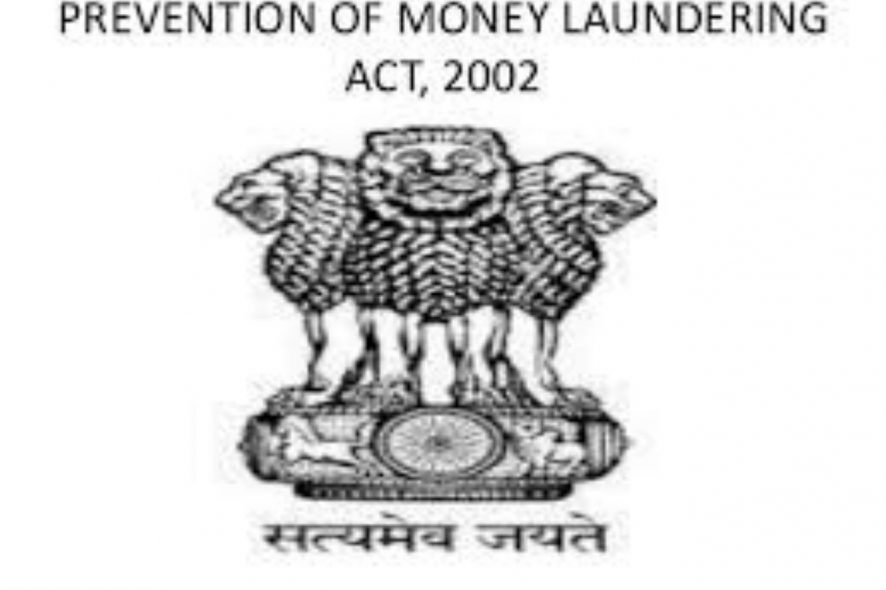Appellate Tribunal for SAFEMA, FEMA, PMLA, NDPS & PBPT Act: Justice Manmohan Singh (Chairman), dismissed an appeal filed by a company challenging a show-cause notice for retention of its property, on the ground that no hardship was caused to the appellant-company by the impugned notice.
In the present case, FIR was registered by CBI against Videocon International Electronics Limited under Sections 120-B and 420 of Penal Code, 1860 and Sections 7 and 13(2) of Prevention of Corruption Act, 1988. It is pertinent to note that appellant’s name was not mentioned in the said FIR. An Enforcement Case Information Report (ECIR) was recorded, but appellant was not even supplied a copy of that report. Search was conducted by Enforcement Directorate (ED) at the appellant’s offices and various documents were seized without even mentioning what those files pertained to. An application was filed by the ED under Section 17(4) of the Prevention of Money Laundering Act, 2002 seeking retention of the seized property. The said application was allowed by the Adjudicating Authority, and appellant was served a show-cause notice under Section 8(1) PMLA seeking his reply as to sources of procurement of property seized. Aggrieved by the said order, the instant appeal was filed.
Learned counsels Vinit Virmani and R.K. Gosain appearing on behalf of the appellant, submitted that the impugned notice was issued on the basis of reason to believe and there was non-application of mind because the Authority did not even peruse the report of records seized. Further, the details of seizure documents were not in the manner prescribed. Since a proper list of documents had not been supplied to the appellant, it was not even aware of the contents of seized documents. It was further contended that the name of the appellant was not even mentioned in the FIR. Lastly, the seizure memo prepared was contrary to Rule 3(3)(A) of PMLA (Restoration of Property) Rules read with Rule 5 of PMLA (Forms, Search & Seizure, Etc.) Rules, 2005.
Counsels for the respondent, Nitesh Rana and A.R. Aditya, submitted that the appeal filed was not maintainable. They argued that before issuing the notice, if there are certain mistakes and defects or omissions, the notice already issued cannot be declared invalid at this stage, under Section 68 of PMLA. It was contended that the Adjudicating Authority did not pass an order, but had merely issued a show-cause notice. An appeal can be filed under Section 26(1) PMLA before this Tribunal only against an order of the Adjudicating Authority which has been passed under Section 8(4) of PMLA. Further, if an appeal is allowed against every procedural act of the Adjudicating Authority, as is the case of appellant, it would lead to multiplicity of proceedings. Respondent’s counsels admitted that a thirty-day notice, as mandated under Section 8 PMLA, was not given prior to issuance of show-cause notice. But he submitted that it was a curable defect under Section 68 PMLA, and that appellant could still be given 30 days to file a reply to the notice.
The Tribunal placed reliance on Farida Begum Biswas v. UOI, 2015 SCC OnLine Del 11834 where it was held that “Any person aggrieved by an order made by the Adjudicating Authority under Section 8 of PMLA can avail the remedy of appeal under Section 26 of PMLA to the Appellate Tribunal” It was opined that an appeal under Section 26 PMLA may or may not be maintainable. An appeal before PMLA may be maintainable in exceptional circumstances such as great hardship being caused to a party, abuse of the law, injustice, irreparable loss and great prejudice to party concerned. Thus, maintainability as an issue could only be decided on the facts and circumstances of each case.
It was noted that in the present case, the respondent had merely seized two files containing papers, and the appellants were entitled to receive copies of the same under Section 21(2) PMLA at the appropriate time. Therefore, no hardship was being caused to the appellant if the objections raised by it would be decided by the Adjudicating Authority within a time-bound manner. Moreover, appellant always had the remedy to challenge the Authority’s order in appeal after the retention order under Section 17(4) PMLA is passed.
In view of the above, the present appeal was dismissed.[Pacific Capital Services (P) Ltd v. Deputy Director, Directorate of Enforcement, Mumbai, 2019 SCC OnLine ATPMLA 26, decided on 30-05-2019]






